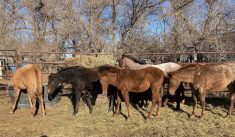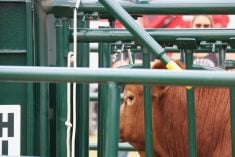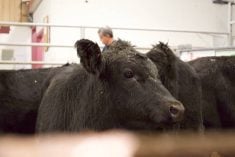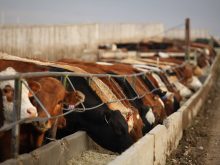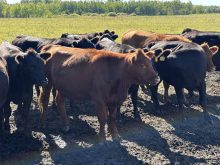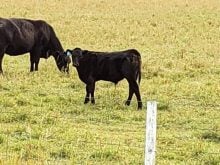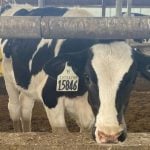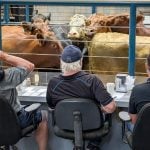The answer is probably out there somewhere — you just need to ask.
All of us in cattle production run into questions about things we haven’t seen before or don’t understand. There are always questions, whether they’re related to production, genetics, animal welfare or some other facet involving the whole animal production cycle.
It is important to remember there are excellent sources of information among the professionals and para-professionals you deal with on your cattle operation. They have a vested interest in you and know the economics involved in each decision you make. So your veterinarian, nutritionist, agricultural extension specialist, horticulturist, semen sales rep, A.I. technician, pharmaceutical rep and foot trimmer all have extensive knowledge from which to draw.
Read Also
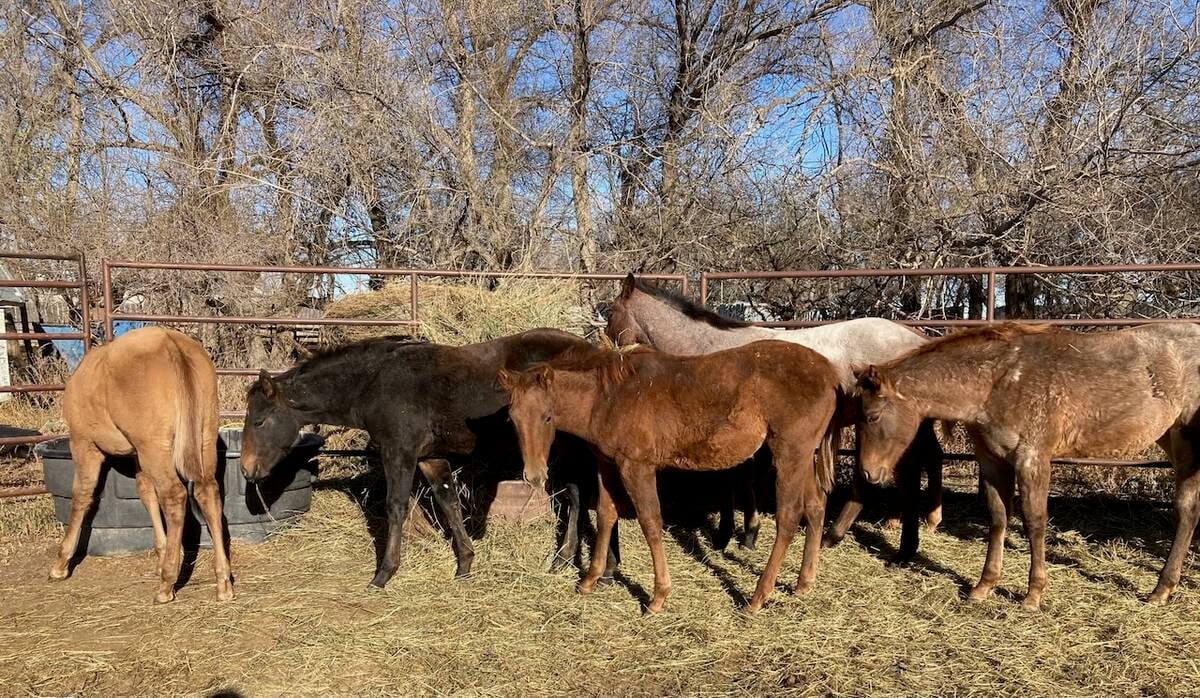
Fall clean-up and bringing animals home at the Eppich ranch
Winter is approaching which meant emoving old fence rows and bringing livestock home before the cold and the snow at the Eppich family ranch.
There will often be different viewpoints and opinions. Consider them all. Talking to a neighbour or an experienced fellow producer about their health protocols and management procedures is often a good place to start. New ideas will come out on new equipment, new vaccines or new treatment regimes. Most times they are a slight improvement on what was there before.
The early adopters will try them first and give the yay or nay. If you are an early adopter, great. Hopefully you can share your experience. If you are a bit more cautious, talk to one the early adopters — it is surprising what we can learn.
Often “Dr. Google” may work for an initial search for information, but it’s important to assess the credibility of the information found online. Is it a trusted website or organization?
For example, among the mistakes producers can make with an online search is finding withdrawal times for drug treatments, but it is unclear if these are Canadian recommendations. I often get asked about a treatment or product that isn’t even approved or available in Canada. In other situations, you might find research papers that can provide huge amounts of detail but are too difficult to wade through to find a simple answer.
Look for trusted sources
Some very credible websites include the Beef Cattle Research Council (beefresearch.ca), where there is wide-ranging information on diseases and production practices. As a division of the Canadian Cattle Association, the BCRC now has about 12 years worth of webinars stored for review on a myriad of health, production, and forage and animal welfare topics.
The BCRC has also developed various production calculators. Recently it posted a series of videos called 911 Calf that should be of interest and benefit to just about all producers. Pulling up 911 Calf on a web search gives access to anyone to all the videos and related YouTube videos. Again, some YouTube videos give valuable information, while others can be quite misleading.
If an organization such as BCRC has put out a video it is totally from an educational standpoint to help cattle producers. Consider BCRC as the new version of the provincial agriculture departments. Provincial extension services were excellent in their day but they have been downsized to the point that they do not begin to provide service they once did.
The provincial livestock associations are also great information sources, along with the extension and research services of provincial, regional and national forage associations.
And don’t forget other excellent sources of information can include the various purebred breed associations, veterinary clinic websites, nutrition companies/feed mills and farm supply stores such as UFA in Alberta, Federated Co-ops, and Cowtown stores in Saskatchewan, to name a few.
If producers ever have any questions or suggestions for topics, videos or teachable things they believe will help you and your fellow cattlemen, contact the BCRC, myself at [email protected] or even Cattleman’s Corner at [email protected] and they’ll do their best to connect you with reliable information to hopefully improve your operation.



